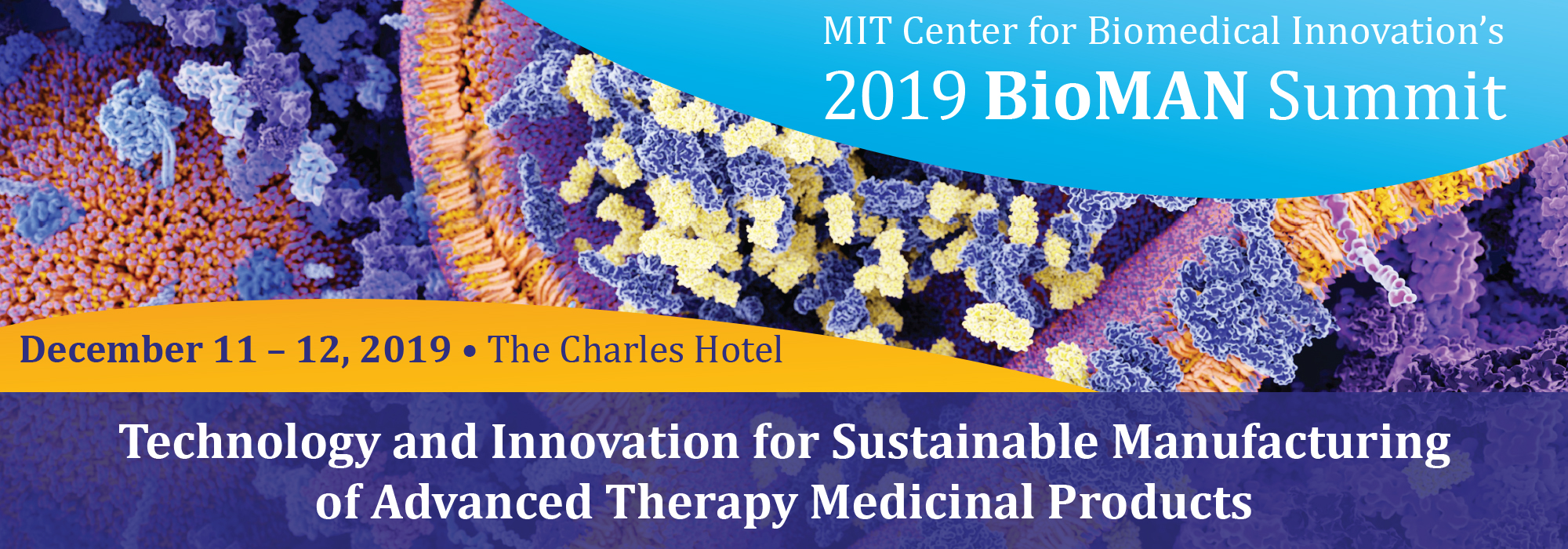Speaker Bios |
 |
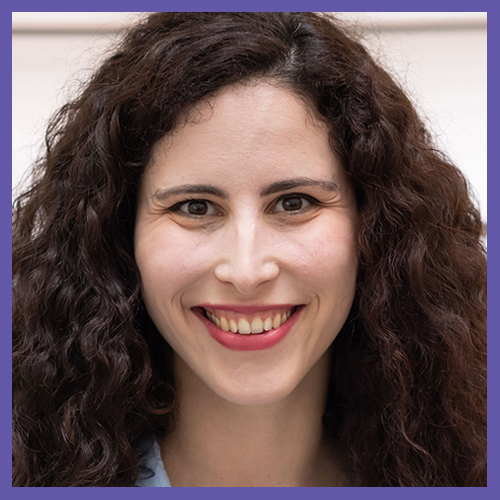
|
Cátia Bandeiras view abstract | back to agenda
PhD Graduate in Early Health Technology Assessment of Stem Cell Therapies, MIT Portugal Program in Bioengineering
Dr. Cátia Bandeiras received her BSc + MSc in Biomedical Engineering from Instituto Superior Técnico (IST), University of Lisbon, Portugal and her PhD in Bioengineering - MIT Portugal Program from IST. Her PhD research focused on the development of TESSEE, a tool for early stem cell economic evaluation, connecting bioprocess and long-term cost-utility analysis of innovations in stem cell engineering. During her PhD, she was based at the Institute for Bioengineering and Biosciences and was a visiting student at the Institute for Data Systems and Society - MIT and the Division of Clinical Informatics - Beth Israel Deaconess Medical Center. Her professional interests include the development of computational models for product and process design in regenerative medicine and global health, sustainable biomaterials, health technology assessment, clinical translation of healthcare innovation, and science and healthcare policy. |
 |
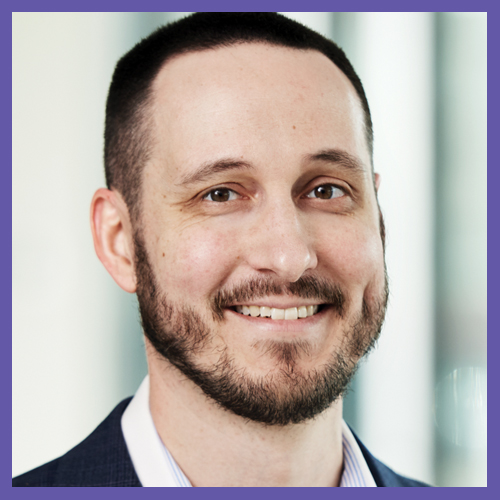
|
Paul W. Barone back to agenda
Director, Biomanufacturing Program and the Consortium on Adventitious Agent Contamination in Biomanufacturing, MIT Center for Biomedical Innovation
Paul W. Barone has been at the MIT Center for Biomedical Innovation (CBI) since 2010. He is currently Director of the Consortium on Adventitious Agent Contamination in Biomanufacturing (CAACB) a biopharmaceutical industry consortia and Co-director of Biomanufacturing Initiatives at MIT’s Center for Biomedical Innovation (CBI). The CAACB is a pre-competitive biopharmaceutical industry consortia focused on multi-disciplinary and cross-functional collaboration to enable the delivery of affordable, safe and effective biopharmaceuticals. In his role as Co-Director of Biomanufacturing Initiatives, Dr. Barone manages a variety of sponsored research activities related to biopharmaceutical manufacturing, including the development of novel analytical technologies for the rapid assessment of protein product quality, the development of a process for the continuous production of viral vectors, and the development of an online course on the principles of cell therapy manufacturing. Prior to joining CBI, Dr. Barone earned an MS and PhD in Chemical and Biomolecular Engineering from the University of Illinois, Urbana-Champaign where his research focused on the development of novel nanoscale sensors for the detection of a variety of biologically relevant analytes, such as hydrogen peroxide, glucose and troponin. |
 |

|
Cullen R. Buie back to agenda
Associate Professor, Mechanical Engineering, Massachusetts Institute of Technology
Cullen Buie is an associate professor in MIT’s Department of Mechanical Engineering and director of the Laboratory for Energy and Microsystems Innovation. His laboratory explores flow physics at the microscale for applications in materials science and applied biosciences. His research is applicable to a diverse range of problems, from anti-biofouling surfaces and biofuels to energy storage and bacterial infections.
In 2017 Kytopen, a start-up Buie co-founded that offers a method of genetic engineering significantly faster than current methods, was among the first start-ups to be backed by The Engine, a start-up ecosystem launched by MIT. Buie was honored with the NSF Career Award in 2012, the DuPont Young Professor Award in 2013, the DARPA Young Faculty Award in 2013, and the NSF Presidential Early Career Awards for Scientists and Engineers in 2016.
Buie received his BS from The Ohio State University. He earned his master’s and PhD in mechanical engineering at Stanford University and served as a postdoctoral fellow for one year at the University of California-Berkeley. |
 |
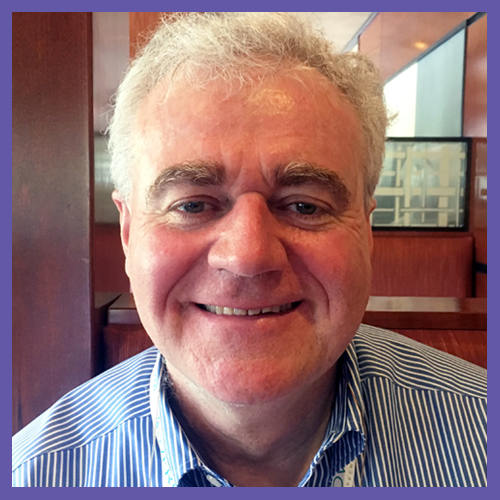
|
Maurizio Cattaneo view abstract | back to agenda
Chief Executive Officer and Founder, Artemis Biosystems
Maurizio Cattaneo did a PhD at McGill in the area of enzyme replacement therapy for ureamia. He then proceeded to NRC as a Research Officer in the area of biosensor development. He founded several companies in the area of drug delivery and cell culture and finally but not least, he developed and patented a single use perfusion system for gene and cell therapy at his newly found company Artemis Biosystems. |
 |
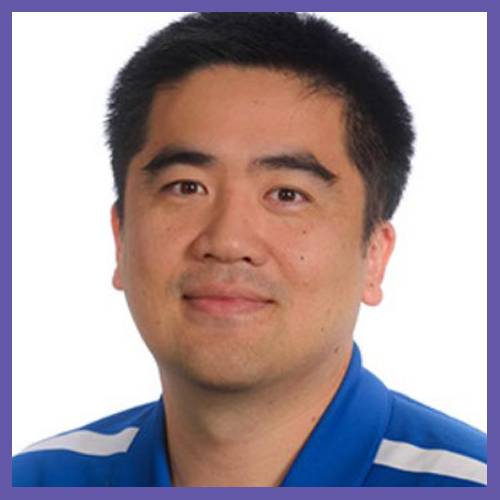
|
Keen Chung view abstract | back to agenda
Principal Scientist, Pall Biotech, Pall Corporation
Keen Chung, PhD is a Principal Scientist, cell culture PDS laboratory in the Cell Culture Technologies Group within the Single Use Technology (SUT) Biotech business unit at Pall Life Sciences. He leads the PDS bioanalytical team for gene therapy viral vector analytics to assist analytics tech transfer, develop analytical SOPs, processing upstream and downstream processes samples for titers and inpurities, ensuring data robustness, and finishing analytical request in a timely manner. In addition to his leader role in bioanalytics, he also leads projects for gene therapy upstream production in iCELLis and STR bioreactors. |
 |

|
Dominic Clarke view abstract | back to agenda
Global Head of Cell Therapy, HemaCare Corporation
Dr. Clarke has over 15 years of experience developing enabling solutions to support cell and gene therapies. He is the Global Head of Cell Therapy at HemaCare, a leading provider of source material for clinical development and commercial manufacturing of cell-based therapies. Previous roles include, Global Product Manager for Charter Medical’s cell therapy and bioprocessing single-use systems portfolio and Director of Research and Development for BioLife Solutions. Dominic currently serves as the co-chair for the International Society for Cell and Gene Therapies Process and Product Development Committee with efforts directed towards translating research and process development from bench to clinic. |
 |
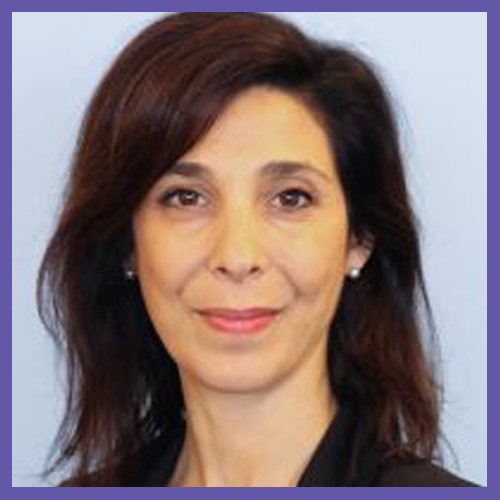
|
Rena M. Conti view abstract | back to agenda
Associate Research Director of Biopharma & Public Policy, Questrom School of Business, Boston University
Rena M. Conti is the Associate Research Director of Biopharma & Public Policy for the Boston University Institute for Health System Innovation & Policy. She is also an Associate Professor at the Boston University Questrom School of Business. From 2006 through June 2018, Professor Conti was an Associate Professor of Health Economics and Policy at the University of Chicago Medical School and the Harris School of Public Policy. Dr. Conti is a health economist. Her research focuses on the organization, financing and regulation of medical care. She has written extensively on the pricing, demand and supply of prescription drugs. |
 |
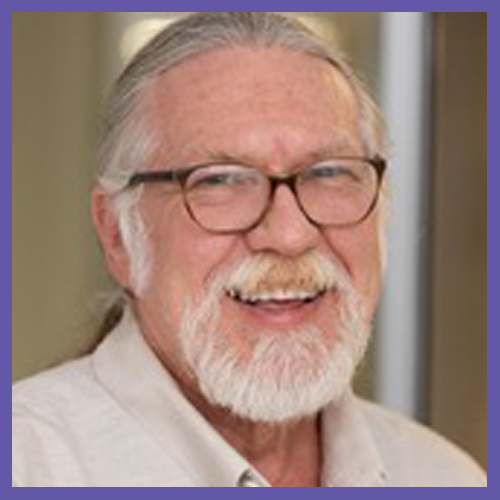
|
Robert Deans view abstract | back to agenda
Chief of Innovation, BlueRock Therapeutics
Dr. Deans is Chief of Innovation at BlueRock Therapeutics, a biotechnology company creating next generation cell therapeutics by harnessing pluripotent stem cell biology and gene editing tools. Prior to BlueRock, Dr. Deans was CSO at Rubius Therapeutics developing a platform of novel enucleated cell therapeutics based on engineering and expansion of hematopoietic progenitors to mature reticulocytes. Dr. Deans has more than 25 years of experience in adult stem cell therapeutics which includes stem cells from bone marrow including both hematopoietic gene therapies as well as mesenchymal stromal cell (MSC) populations. |
 |
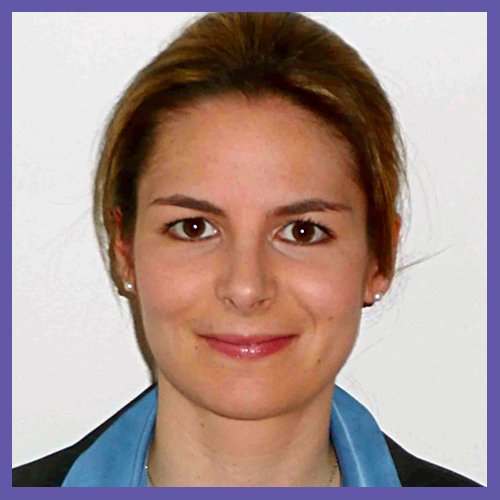
|
Maya Fuerstenau-Sharp view abstract | back to agenda
Global Manager Marketing, Regenerative Medicine, Sartorius Stedim
Maya Fuerstenau-Sharp is Global Manager of Marketing, Regenerative Medicine Applications at Sartorius Stedim Biotech. In that role, she is responsible for implementing the strategic marketing position of Sartorius as a key solutions provider for the advanced therapies market. Leading a global team of technology experts, Maya is also responsible for facilitating collaborations with key opinion leaders in the cell and gene therapy field to bring new technology solutions to this rapidly growing market. Prior to Sartorius, Maya held key R&D and marketing positions at Cellular Dynamics International and Life Technologies. Maya holds a PhD in Biomedicine from the University of Regensburg, Germany and an MS in Biotechnology and BS in Genetics from the University of Madison, WI. |
 |
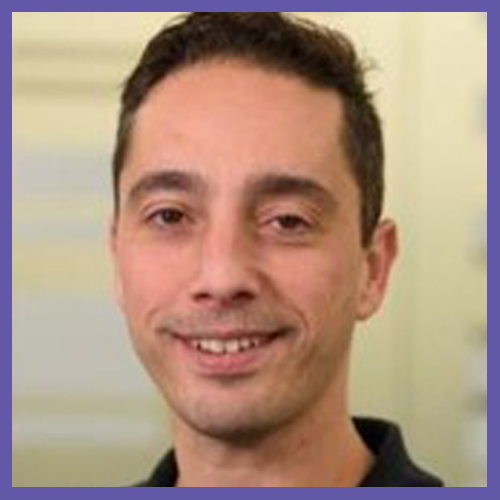
|
Demetrios Kalaitzidis view abstract | back to agenda
Director, Immuno-Oncology, CRISPR Therapeutics
Demetrios Kalaitzidis is a Director in the Immune Oncology Department at CRISPR Therapeutics. He has been active in the research and development of genome edited cell therapy products since 2015. He had completed his graduate studies at Boston University and postdoctoral work at Harvard Medical School. |
 |
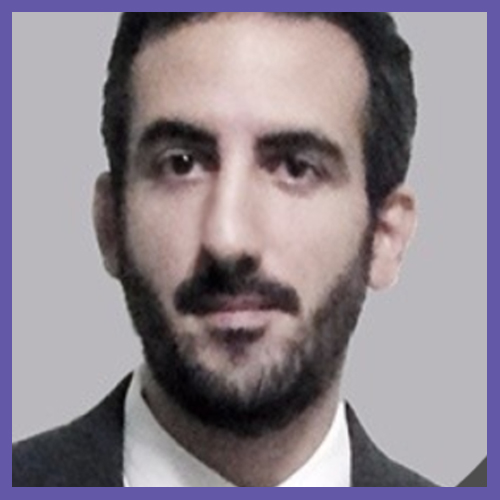
|
Konstantinos Karagiannis view abstract | back to agenda
Lead Bioinformatics Engineer, CRISPR Therapeutics
Konstantinos is a bioinformatics scientist with electrical and software engineering training and long experience in big data analytics. Konstantinos joined CRISPR Tx in January 2019 in the role of Lead Bioinformatics Engineer and is responsible for designing, developing and implementing single cell algorithms and pipelines. As a member of technical committee on the BioCompute standard, Konstantinos is also focused on reproducibility and interoperability of bioinformatics workflows. Before, joining CRISPR Tx, Konstantinos worked at FDA leading the algorithmics development within the High-performance Integrated Virtual Environment (HIVE), an infrastructure for high-throughput sequence analytics. |
 |
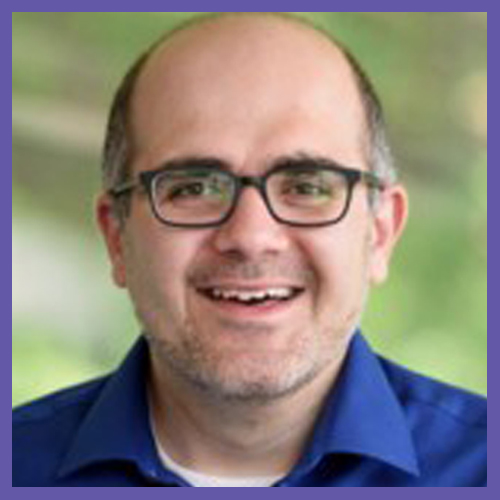
|
Sadik H. Kassim view abstract | back to agenda
Chief Technology Officer, Vor Biopharma
Sadik Kassim is CTO of Vor Biopharma. He has held leadership positions at Kite Pharma, where he led the development of manufacturing processes for autologous CAR- and TCR-based gene-modified cell therapies, and at Mustang Bio where he was CSO and oversaw the foundational build-out of the company’s preclinical and manufacturing activities. Prior to Mustang, Dr. Kassim was Head of Early Analytical Development for Novartis’ Cell and Gene Therapies Unit, where he contributed to the BLA and MAA filings for Kymriah®. Earlier in his career, Dr. Kassim was a research biologist at the National Cancer Institute, where he was involved in early research and CMC work that led to the development of several first-in-human TCR and CAR-T products and was a research fellow in the University of Pennsylvania’s Gene Therapy Program, where he led the initial discovery and preclinical studies for an AAV8 gene therapy for familial hypercholesterolemia, a program that is now in the clinic in a Regenx Bio sponsored trial. |
 |

|
Karen Katz view abstract | back to agenda
Director, Financing and Reimbursement of Cures in the US (FoCUS) Project, MIT Center for Biomedical Innovation
Karen Katz is the Program Director of FoCUS. Previous to FoCUS, Karen was the Director, Intellectual Property Programs, Suffolk University Law School where she developed on-line educational programming, conducted public and academic conferences and created a masters level degree focused on the biopharma industry. Karen practiced law at Hale & Dorr, Crowell & Moring and was in-house counsel at St. Elizabeth’s Hospital in Washington, DC. She presently serves on the board of Addgene, and previously served on the boards of BioBuilder, The Capital Network and MassMedical Angels. She worked in the healthcare and law practices at Korn/Ferry International, was part of the teams at LawCorps and Pangea3 (sold to TMP Worldwide/Monster and Thomson Reuters respectively) and was recognized by the Boston Business Journal for her achievements in the business community. She obtained her law degree from Boston University School of Law where she was on the law review and clerked for the U.S. Court of Appeals for the First Circuit. |
 |
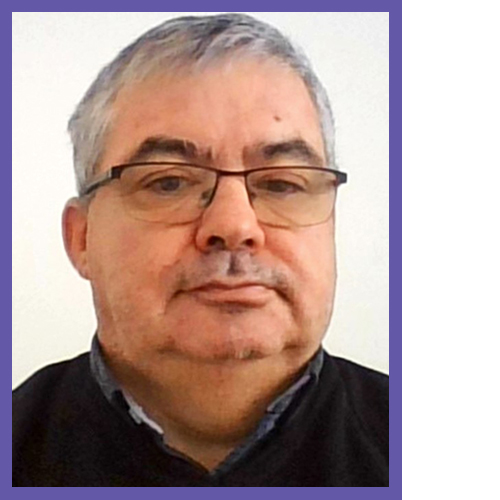
|
René Labatut view abstract | back to agenda
Vice President, Head of Biologics Technology Innovation Strategy, Sanofi
René Labatut had more than 25-years of experience in the biotech industry with deep experience in CMC of the biopharmaceutical industry, from research & development to manufacturing management. He has an international track record in technology innovation, technology transfer, licensing in and out, and acquisition-integration management. René is currently the Vice President , Head of Biologics Technology Innovation Strategy at Sanofi. He has made significant contributions to development and commercialization of several key biotherapeutic products, in multiple therapeutic areas (rare diseases, transplants, and vaccines). René holds a PhD in Biochemistry and a Master’s in Bioengineering from the National Institute of Applied Sciences (Lyon, France), a Master’s in Molecular Biology from The University of Lyon, and a Master’s in Business from Jean Moulin University Lyon III. |
 |
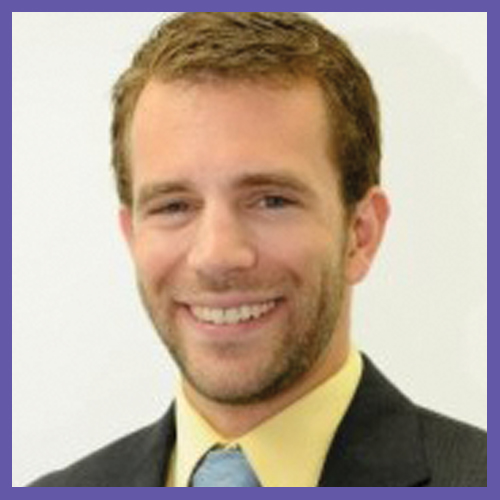
|
Christopher Leidel back to agenda
Head of Acoustic Strategy, Gene Editing and Novel Modalities, MilliporeSigma
Chris Leidel joined FloDesign Sonics in 2013 as the 3rd full time employee and, over the company’s life, has filled a variety of roles in finance, marketing, strategy, fundraising, and business development. He has a degree in mechanical engineering and an MBA from the University of Massachusetts Amherst. Most of his career has been spent in and around early stage companies looking to commercialize new and novel technologies into established markets. |
 |
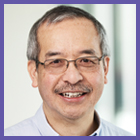
|
James C. Leung back to agenda
Senior Research Fellow, MIT Center for Biomedical Innovation
James Leung, PhD is a Senior Research Fellow at the MIT Center for Biomedical Innovation (CBI). He serves as the lead investigator for the Consortium on Adventitious Agent Contamination in Biomanufacturing (CAACB) and the Biomanufacturing (BioMAN) program. He contributes to the design and implementation of biotechnology-related courses and serves as a lecturer in some of these courses at MIT. He maintains a strong connection to industrial practices by serving as a consultant/advisor to pharmaceutical and biotechnology companies and other research organizations. Before his current roles, Jim held full time positions at Genentech, Repligen and Ipsen in the areas of process development, manufacturing and product development of recombinant biotherapeutics. Jim received a BSc degree from the Chemical Engineering Department at MIT. For graduate studies, he completed a MSc degree and a PhD degree in Biochemical Engineering from MIT. |
 |
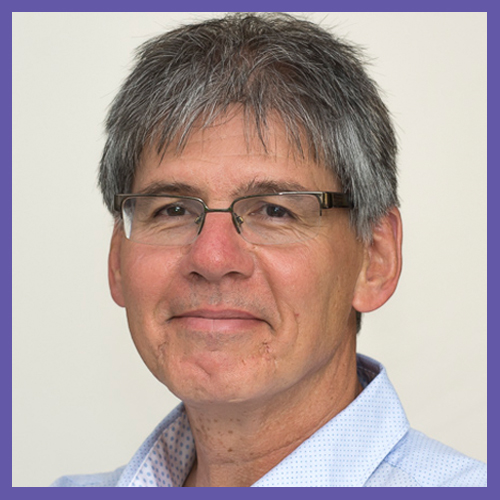
|
Bart Lipkens view abstract | back to agenda
Chief Technology Officer, Gene Editing & Novel Modalities, MilliporeSigma
Bart Lipkens is currently the Head of Acoustics R&D at MilliporeSigma. Previously, he was the co-founder and Chief Technology Officer of FloDesign Sonics, a company acquired in October 2019 by MilliporeSigma, where he was developing acoustic platform technologies for the manufacturing of cell and gene therapies. He holds more than fifty patents in the space of acoustic particle processing. He is a Professor of Mechanical Engineering at Western New England University. He is a Fellow of the Acoustical Society of America. |
 |
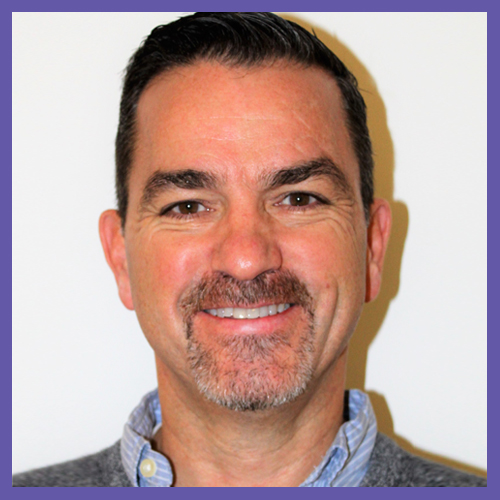
|
Phillip Maderia view abstract | back to agenda
Head of Manufacturing Operations, Codiak BioSciences
Phillip Maderia is the Head of Manufacturing Operations/Site Head for the Clinical Manufacturing Facility at Codiak BioSciences. He has over 28 years of experience in biopharmaceutical manufacturing, including previous leadership roles in Manufacturing Operations, Process & Automation Engineering and Program Management at Genzyme and LFB-USA. He has proudly served in the United State Air Force and holds a BS degree in Mechanical Engineering from Northeastern University. |
 |
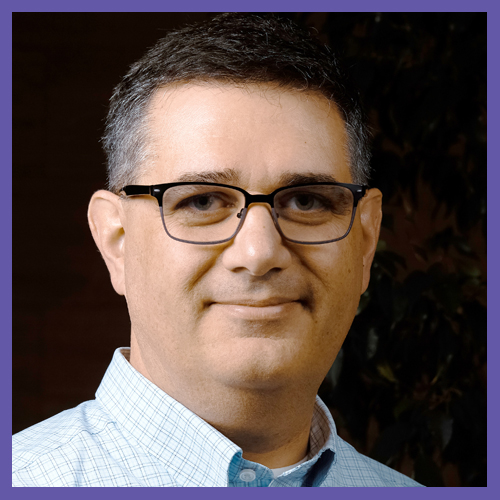
|
John Maga view abstract | back to agenda
Senior Director, Process Sciences, Purification Process Development, BioMarin
Dr. John Maga is the Senior Director of Purification Process Development in the Process Sciences group at BioMarin. He received his PhD in Biochemistry from Purdue University and performed postdoctoral research at the Seattle Biomedical Research Institute before joining two start-up biotech companies in the Midwest, Symbiontics and ZyStor Therapeutics. The protein targeting technologies developed at these companies were acquired by BioMarin, where John currently leads development of large-scale purification processes for recombinant protein therapeutics and gene therapy vectors. |
 |

|
Scott Manalis view abstract | back to agenda
Andrew and Erna Viterbi Professor of Biological Engineering, MIT Koch Institute for Integrative Cancer Research
Scott Manalis is the Andrew and Erna Viterbi Professor of Biological Engineering, associate department head of biological engineering and a member of the Koch Institute for Integrative Cancer Research. He has been a faculty member at Massachusetts Institute of Technology since 1999 and prior to that he received his undergraduate and graduate degrees in physics and applied physics at University of California at Santa Barbara and Stanford, respectively. His lab is interested in developing precision measurement approaches for biological and clinical applications. |
 |
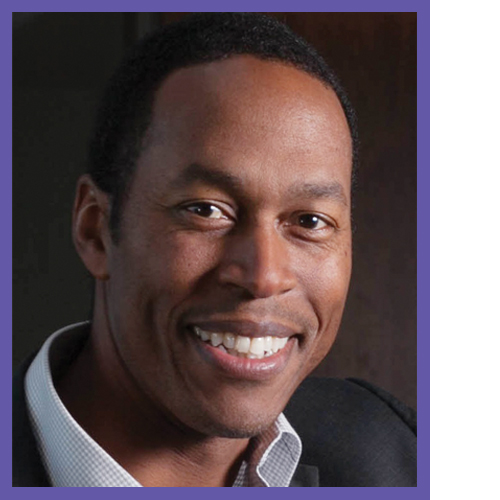
|
Travis McCready back to agenda | back to agenda day 1 | back to agenda day 2
President and Chief Executive Officer, Massachusetts Life Sciences Center
Travis McCready is the President and CEO of the Massachusetts Life Sciences Center, a $1 billion public–private partnership with the mission of advancing the life sciences ecosystem in Massachusetts. He directs and oversees the center’s investment strategy, including the agency’s operations, programs, and partnerships. Previously, Mr. McCready served as the Vice President for Programs at The Boston Foundation, directing the Foundation’s grants and community investment strategy to benefit the people of Greater Boston. He was the first Executive Director of the Kendall Square Association, responsible for growing the innovation economy of Kendall Square, one of the Commonwealth’s most economically robust districts. He has held the COO and CFO positions at the Massachusetts Convention Center Authority, overseeing the operations and finances for three convention centers in Massachusetts. A native of Brooklyn, Mr. McCready began his career as a public school teacher in the Bronx, NY. Mr. McCready serves as a trustee on the Advisory Boards for Beth Israel Deaconess Medical Center, the Conservation Law Foundation, Institute of Contemporary Art/Boston, and WBUR; and the New England Advisory Council for the Federal Reserve Bank of Boston. He also serves on the Academic Institute Advisory Board Member for Atrius Health, in addition to, the Massachusetts Digital Healthcare Council and the Advanced Manufacturing Collaborative. Mr. McCready previously served on the Economic Development Planning Council under two governors, including co-chairing the subcommittee on innovation and entrepreneurship. In 2018, he was named one of the “100 Most Influential People in Boston” by Boston Magazine. Mr. McCready is a frequent speaker on economic development strategy as it relates to the convergence of private, public, and not-for-profit interests. His blog, Life Sciences Discourses, has been recognized by The Boston Globe. |
 |
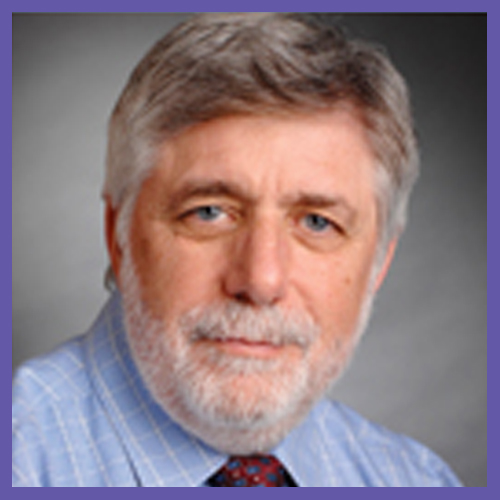
|
Jerome Ritz back to agenda
Executive Director, Connell and O’Reilly Cell Manipulation Core Facility, Dana-Farber Cancer Institute
A graduate of Northwestern University in Evanston Illinois, Dr. Ritz received his MD from Chicago Medical School in 1972, followed by a residency in Internal Medicine at the University of Wisconsin Hospital, Madison. Dr. Ritz subsequently completed a clinical fellowship in Hematology and Oncology at Beth Israel Hospital and a research fellowship in Tumor Immunology at the Dana-Farber Cancer Institute in Boston. He joined the faculty of the Dana-Farber Cancer Institute and Brigham and Women’s Hospital in 1980. Dr. Ritz was a Scholar of the Leukemia Society of America and a recipient of the Society’s Stohlman Scholar Award. He is currently Professor of Medicine at the Dana-Farber Cancer Institute, Brigham and Women’s Hospital and Harvard Medical School. Dr. Ritz has been a successful laboratory and translational scientist for over 35 years. His major interests have been in cancer immunology and hematopoietic stem cell transplantation. Recent studies in his laboratory have focused on immune reconstitution in patients undergoing hematopoietic stem cell transplantation. In this setting, donor immune cells play a critical role in the recognition and elimination of residual leukemia cells (graft versus leukemia – GVL) but immunologic targeting of normal recipient cells also leads to graft versus host disease (GVHD) and damage to normal tissues. Studies of immune reconstitution have demonstrated that donor B cells and regulatory T cells play important roles in the development of GVL and GVHD and the establishment of immune tolerance after stem cell transplantation. These observations have led to the development of new strategies to selectively modulate immune reconstitution to improve patient outcomes after transplant. Dr. Ritz is a member of the Hematopoietic Stem Cell Transplantation Program at the Dana-Farber Cancer Institute and Brigham and Women’s Hospital. He is Executive Director of the Connell O’Reilly Cell Manipulation Core Facility (CMCF). The CMCF is a core facility of the Dana-Farber/Harvard Cancer Center and supports the adult and pediatric stem cell transplant programs at DFCI, BWH and Boston Children’s Hospital. The CMCF is a GMP processing facility that provides manufactured cellular products of various types for patients enrolled on clinical trials evaluating novel cellular therapies for cancer and other diseases. These include cellular cancer vaccines, immune cells for adoptive cell therapy and genetically modified cells. |
 |
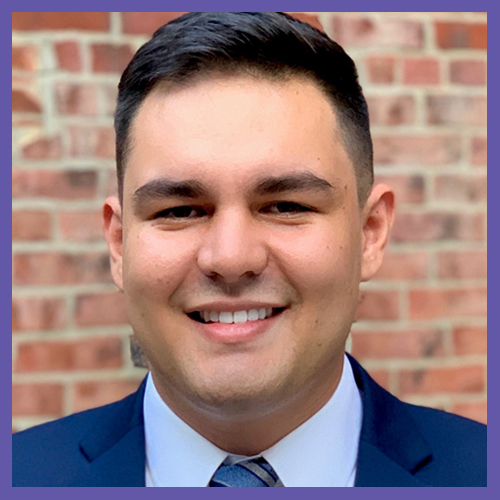
|
Jonathan Salcedo view abstract | back to agenda
PhD Candidate, University of Southern California; Visiting Scholar, FoCUS Program, MIT Center for Biomedical Innovation
Jonathan Salcedo is a PhD Candidate in Pharmaceutical and Health Economics at the University of Southern California, Predoctoral Research Fellow at the Leonard D. Schaeffer Center for Health Policy & Economics, and Visiting Scholar at MIT. He was previously a USC Graduate School Predoctoral Fellow and has interned with health economics and management consulting firms. His work involves the use of simulation models to study cost-effectiveness in chronic disease treatment, including active tuberculosis treatment monitoring in Los Angeles County and different treatment modalities in esophageal cancer. A current project of his focuses on understanding the direct economic burden faced by patients with sickle cell disease (SCD) in the United States. He holds a master’s degree in economics from Duke University and a bachelor’s degree in mathematics and economics from the California State University, Fresno. |
 |

|
Anthony J. Sinskey back to agenda
Professor of Biology; Faculty Director, MIT Center for Biomedical Innovation
Anthony J. Sinskey, ScD, is a Professor of Microbiology at the Massachusetts Institute of Technology. He also holds positions as Co-Director of the Malaysia-MIT Biotechnology Partnership Program and as Faculty Director of the MIT Center for Biomedical Innovation. He conducts interdisciplinary research in metabolic engineering focusing on the fundamental physiology, biochemistry and molecular genetics of important organisms.
Professor Sinskey is well known in the biopharmaceutical industry and has been a Scientific Co-founder of several biotechnology companies, including Genzyme, Metabolix, Merrimack Pharmaceuticals, and Tepha. Dr. Sinskey has given more than 350 presentations at US and International scientific meetings and congresses. He has received 31 issued patents, has made more than 30 invention disclosures and has published more than 350 scientific papers in leading peer-reviewed journals for biology, metabolic engineering, and biopolymer engineering.
His current research focuses on the genetics and biochemistry of carbon storage in biological systems including biopolymers and triacylglycerides. Investigations include studies with a variety of feedstocks to fuels, chemicals and biopolymers.
Dr. Sinskey received his undergraduate degree from the University of Illinois at Urbana-Champaign and his ScD in Microbiology and Food Science from the Massachusetts Institute of Technology. His post-doctoral work was done at the Harvard School of Public Health. |
 |
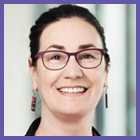
|
Stacy L. Springs view abstract | back to agenda day 1 | back to agenda day 2
Executive Director, Biomanufacturing Initiatives; Senior Director of Programs, MIT Center for Biomedical Innovation
Dr. Stacy Springs serves as Senior Director of Programs at MIT’s Center for Biomedical Innovation (CBI) and Executive Director of CBI’s Biomanufacturing Initiatives, which include the BioMANufacturing Consortium (BioMAN), its Consortium on Adventitious Agent Contamination in Biomanufacturing (CAACB), and its BioACCESS initiative. The objective of the BioMANufacturing Consortium is to develop new knowledge, science, technologies and strategies that advance the manufacture and global delivery of high-quality biopharmaceuticals. The CAACB pools biopharmaceutical manufacturing expertise in the area of adventitious agent contamination to better enable the safe and dependable delivery of life-saving biologics. BioACCESS is an initiative aimed at enabling global access to biologic therapies, especially for non-communicable diseases in resource-constrained settings, through innovative approaches to systems analysis, technology development, policy design, and education. Dr. Springs also is Principle Investigator and Executive Director for the Food Supply Chain, Analytics and Sensing (FSAS) Initiative at the Sloan School of Management. This initiative is focused on using systematic risk management to address global issues related to food safety, supply chain optimization, food waste and access to healthy foods. Stacy is a co-investigator on a collaborative effort to bring forward new predictive risk analytics tools, testing technologies, and platforms to address core food safety challenges in China and the world. Stacy’s background, training, and experience are in inorganic and biophysical chemistry, biomanufacturing, food safety and regulatory science. She holds a PhD in Chemistry from the University of Texas at Austin, gained postdoctoral training in protein and biophysical chemistry and has over 20 years of experience in biotechnology and food safety work. |
 |
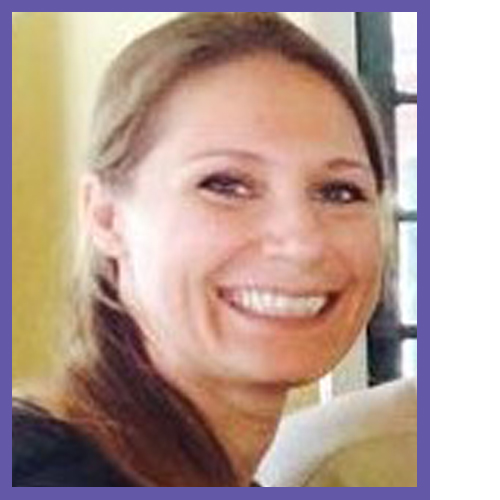
|
Jessica Tate view abstract | back to agenda
Principal Investigator, Science & Technology, Pharma Services, Viral Vector Services, Thermo Fisher Scientific
Dr. Tate has a Biology PhD with 13 years of molecular virology experience, with the last 5 of those years leading development, tech transfer, and manufacturing of viral vectors at Brammer Bio, a part of Thermo Fisher Scientific. She also has degrees and/or focused study in Chemistry, Molecular Genetics, and Mathematics. Dr. Tate is passionate about driving innovation in the viral vector field and advancing the quality and timelines of these advanced therapeutics. |
 |
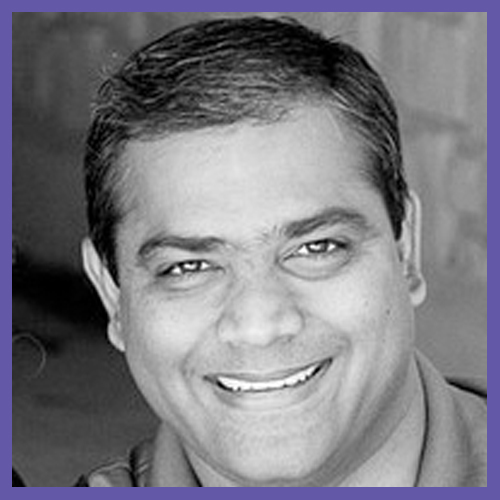
|
Arun Tholudur view abstract | back to agenda
Executive Director, Process Development, Amgen
Arun Tholudur is an Executive Director of Process Development at Amgen where he leads the Drug Substance Technologies and Engineering organization that is accountable for ensuring successful implementation of multi-modality drug substance processes in the GMP environment from first-in-human clinical to commercial manufacturing across Amgen's internal and external manufacturing network. The team’s responsibilities span technology transfer, process validation, process monitoring, regulatory submission authoring and inspection support, continued process optimization for yield and robustness, sophisticated digital capabilities including advanced process/plant modeling and design, new next-gen facility startup, and ensuring technology readiness for manufacturing implementation. Arun has previously held several leadership roles in Process Development at Amgen including Executive Director Secondary Packaging Engineering, Director Global Operations Leader responsible for all CMC aspects of IMLYGIC®, and Director Amgen Colorado Process Engineering. Prior to joining Amgen in 2006, Arun Led the development and/or transfer of mammalian and microbial processes for clinical to commercial GMP production of biotherapeutic molecules at Diosynth Biotechnologies. He has a PhD and BTech in Chemical Engineering from the University of Colorado at Boulder and Indian Institute of Technology, Madras, respectively. |
 |
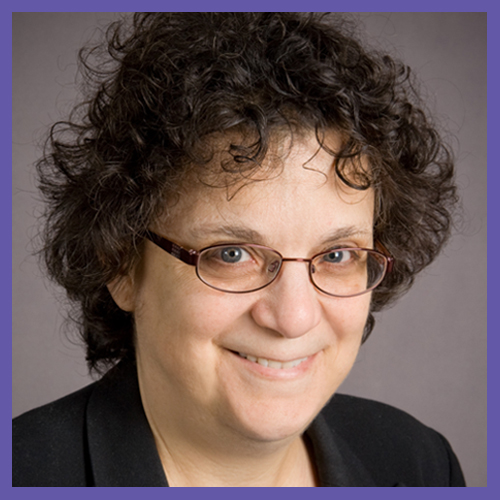
|
Celia M. Witten view abstract | back to agenda
Deputy Director, Center for Biologics Evaluation and Research, United States Food and Drug Administration
Celia M. Witten, PhD, MD is the Deputy Director of the Center for Biologics Evaluation and Research at the Food and Drug Administration (FDA/CBER). Between 2005 and 2016 she served as the Director of the Office of Cellular, Tissue and Gene Therapy at the FDA/CBER. Between 1996 and 2005 she served as Director of the Division of General, Restorative, and Neurological Devices in the Office of Device Evaluation in the Center for Devices and Radiological Health (CDRH). Previous to FDA, she worked for over 10 years as a practicing physician at the National Rehabilitation Hospital (NRH) in Washington, D.C. Her educational background includes a BA earned at Princeton University (Magna Cum Laude), a PhD from Stanford University, and an MD from the University of Miami School of Medicine. In addition to her academic achievements she is Board Certified in Physical Medicine and Rehabilitation. |
 |
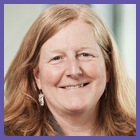
|
Jacqueline M. Wolfrum back to agenda
Associate Director, Biomanufacturing Program, MIT Center for Biomedical Innovation
Dr. Jacqueline Wolfrum is the Associate Director of the Biomanufacturing Program at MIT’s Center for Biomedical Innovation (CBI), where her work includes managing sponsored research programs and advancing initiatives in the area of cell and gene therapy manufacturing. She was the inaugural Strategic Programs and Partnerships Advisor for the National Institute for Innovation in Manufacturing Biopharmaceuticals (NIIMBL). She previously worked on development of microbioreactors for the culture of mammalian cells in the laboratory of Professor Rajeev Ram in the Physical Optics and Electronics Group at MIT’s Research Laboratory of Electronics (RLE). She has more than 15 years of experience in research, development, and manufacturing support for the cGMP cell therapy products and cell-based medical devices in previous positions at W.R. Grace and Genzyme Tissue Repair/Genzyme Biosurgery. Dr. Wolfrum received an SB in Chemical Engineering from MIT and a PhD in Biomedical Engineering from RPI. |
 |
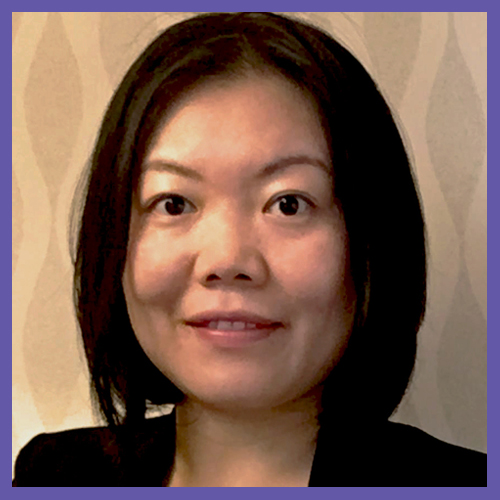
|
Chelsea Qiong Xue view abstract | back to agenda
Head of Analytical Development for Cell Therapies, Takeda
Chelsea is currently Head of Analytical Development for Cell Therapies in Takeda. She is building the analytical capabilities and developing an integrated analytical package to enable product quality control, drive product understanding and next-generation design. In her previous role at Novartis, Chelsea contributed significantly on product analytics and CQA discovery for CTL019 which was later approved for ALL as Kymriah. She later led a group focused on clinical biomarker development. Chelsea received her PhD from Texas A&M Health Science Center and competed postdoc training in Yale University. |
 |
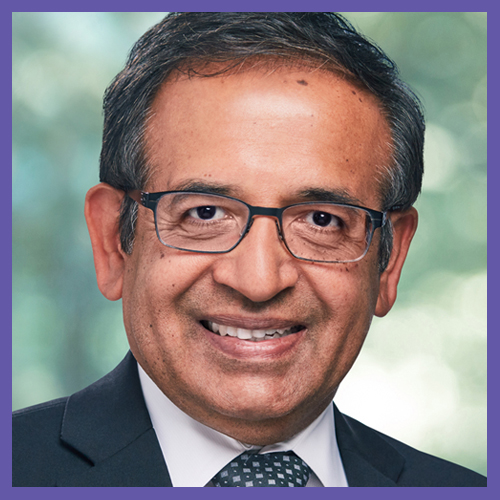
|
Vijay Yabannavar view abstract | back to agenda
Executive Vice President of Manufacturing and Technical Operations, Gritstone Oncology
Vijay Yabannavar is the Executive Vice President of Manufacturing and Technical Operations at Gritstone Oncology. Before Gritstone, he served as vice president of global technical operations - vaccines, biologics and sterile operations at Merck from 2015 until June 2019. Prior to 2015, he was senior vice president of manufacturing & technical development at Emergent BioSolutions, focusing on biodefense. Dr. Yabannavar also held process development and manufacturing roles at Trubion Pharmaceuticals, Novartis Pharmaceuticals, Chiron Corporation and Schering-Plough Corporation. He has served as a member of the Advisory Board for the Chemical Engineering and Materials Science Department at the University of California, Davis. Dr. Yabannavar obtained his PhD in chemical engineering from the Massachusetts Institute of Technology (MIT) and his BTech in chemical engineering from the Indian Institute of Technology Bombay. |
 |

|
Timothy Yu view abstract | back to agenda
Attending Physician, Division of Genetics and Genomics, Boston Children’s Hospital
Dr. Tim Yu, MD, PhD is a neurologist in the Division of Genetics and Genomics at Boston Children’s Hospital, Assistant Professor at Harvard Medical School, and an Associate Member of the Broad Institute. An early pioneer in human genomics, he has contributed to the identification of over a dozen human disease genes affecting human brain development and function. His laboratory applies genetics, neurobiology, and bioinformatics to study these conditions and advance genomic medicine, ranging from autism gene discovery, genome sequencing for neonatal care, and therapeutic approaches to orphan neurogenetic diseases. |
 |
|
